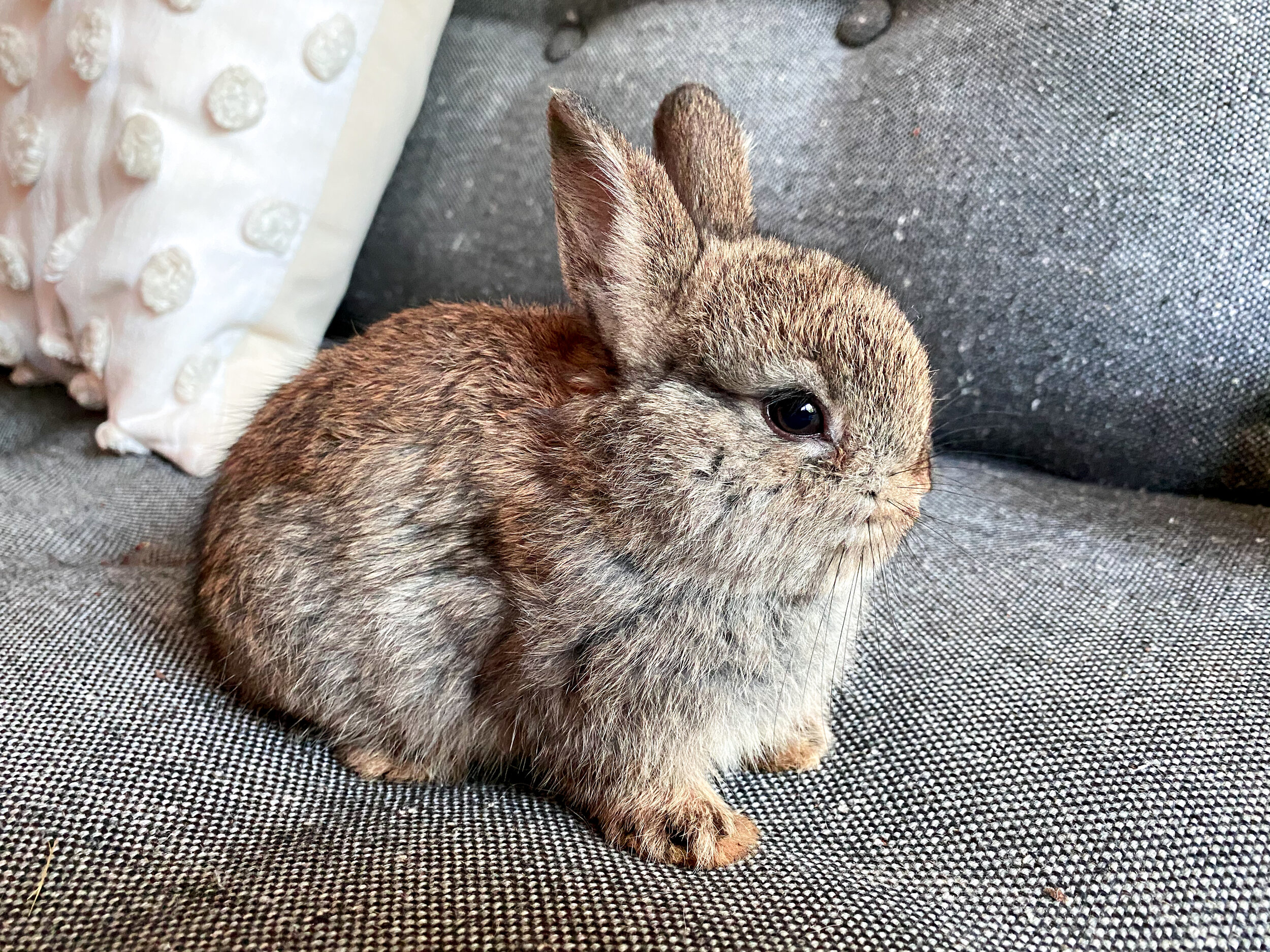
Caring for a Baby Rabbit: A Comprehensive Guide
Baby rabbits, also known as kits, are adorable and fragile creatures that require specialized care to thrive. Whether you’ve stumbled upon an abandoned kit or welcomed a litter into your home, understanding their unique needs is crucial for their well-being. This comprehensive guide will provide you with all the essential information you need to care for a baby rabbit, from feeding and housing to health and socialization.
Feeding
- Formula: Newborn kits rely solely on milk from their mother. If the mother is unavailable, you’ll need to provide a kitten milk replacer specifically formulated for rabbits. Feed the formula using a syringe or a special bottle designed for baby rabbits.
- Frequency: Feed kits every 2-3 hours for the first few weeks of life. Gradually increase the interval to every 4-6 hours as they grow older.
- Temperature: Warm the formula to body temperature (101-103°F) before feeding.
- Amount: The amount of formula to feed depends on the kit’s age and weight. As a general rule, feed 2-3 ml per feeding for the first week, increasing to 5-10 ml per feeding by the fourth week.
- Weaning: Kits typically start nibbling on solid food around 3-4 weeks of age. Gradually introduce hay, pellets, and fresh vegetables into their diet while continuing to provide formula. By 6-8 weeks, they should be fully weaned.
Housing
- Enclosure: Baby rabbits need a warm, draft-free enclosure that’s large enough for them to move around comfortably. A cardboard box lined with soft bedding or a small pet carrier works well.
- Bedding: Use soft, absorbent materials such as shredded paper, fleece, or hay as bedding. Avoid using cedar or pine shavings, as they can irritate the kit’s respiratory system.
- Temperature: Kits are highly susceptible to cold. Maintain a temperature of 85-90°F for the first week of life, gradually reducing it to 70-75°F by the fourth week.
- Humidity: Keep the humidity level around 50-60% to prevent dehydration.
Health
- Monitoring: Observe kits closely for any signs of illness, such as lethargy, diarrhea, or discharge from the eyes or nose.
- Hygiene: Keep the enclosure and bedding clean to prevent infections. Change the bedding daily and disinfect the enclosure regularly.
- Vaccinations: Consult with a veterinarian about vaccinations against common rabbit diseases, such as myxomatosis and rabbit hemorrhagic disease.
- Parasites: Check kits regularly for parasites, such as fleas, mites, or worms. Treat infestations promptly to prevent health problems.
Socialization
- Handling: Handle kits gently and frequently to socialize them. Start by petting them for short periods and gradually increase the duration as they become more comfortable.
- Interaction: Provide kits with plenty of opportunities to interact with people and other animals. Supervised playtime with gentle dogs or cats can help them develop social skills.
- Companionship: Rabbits are social animals and thrive in pairs or small groups. If possible, consider getting two or more kits to keep each other company.
Special Considerations
- Abandoned Kits: If you find an abandoned kit, it’s crucial to act quickly. Keep the kit warm and contact a wildlife rehabilitator or veterinarian immediately.
- Orphaned Kits: If the mother is deceased or unable to care for her kits, you’ll need to provide round-the-clock care. This includes feeding, cleaning, and keeping them warm.
- Injured Kits: If a kit is injured, seek veterinary attention immediately. Do not attempt to treat the injury yourself.
Additional Tips
- Patience: Caring for a baby rabbit requires patience and dedication. They are fragile creatures that need constant attention and care.
- Research: Educate yourself about rabbit care by reading books, articles, and consulting with a veterinarian.
- Supplies: Gather all the necessary supplies before bringing a kit home, including formula, syringes, bedding, and an enclosure.
- Enjoy: Baby rabbits are a joy to care for. Cherish the time you have with them and provide them with the best possible care.
Remember, caring for a baby rabbit is a significant responsibility. By following these guidelines and providing them with love and attention, you can help them grow into healthy and happy adult rabbits.
